- Home
- Roger Zelazny
Flare Page 3
Flare Read online
Page 3
The nose exploded off the face in a cloud of white dust. The blow left a deep gouge between the cheekbones and under the eyes.
Beowin spat into the hole. He left the bust lying against the stone. If Roderic had been doing this himself, he would have set the head back on its column, for show.
"A temple, you say?" Beowin looked up with a grin. "Any pretty priestesses?"
"All gone, I'm afraid.... But Alaric thinks they might have hidden gold under the roof, in the eaves."
"Well then, priests? Their men are kind of delicate and not at all strong."
"Gone, too."
"Damn!"
But Beowin came along with him anyway—that is, until he saw another statue with a whole nose. Then his friend's attention wandered immediately. So Roderic left him in the Forum, trying to lower the full-body statue without breaking off the head or hands. Clearly he wanted just the nose to be missing when someone found it. Roderic went on to the temple site alone.
The whole world was moving. Alaric and his band of Goths, as well as the Vandals, the Lombards, the Saxons, and a dozen other tribes that Roderic knew only by reputation, all were loose in the vineyards and fields which the old Romans had kept for themselves so long.
Beowin was a fool to bother with the statues and their noses—Roderic understood that clearly enough. A man had no time to waste on artworks and such windy considerations as what a dead Roman's friends would think when they saw him "widoubt hid dose."
The thing to do was get the gold, the jewels if any, now and then a cup or plate of polished metal, any weapons that would fit a horseman's hand, and ride on. Leave the furniture. Leave the statues. Use any women they found for a night at most, and then leave them, too. And ride.
For there were worse things in the world than rape and pillage, Roderic knew. Pushing in behind the Goths and Vandals, raiding hard against the Celts and the Saxons to the north, came another people. Dark-clothed riders from the steppes. People of the dawnlands. Small people, bowlegged from sitting their horses for weeks at a time. Smelly people who lived in skin tents. Who knew nothing of gold or women. Who'd kill you soon as look at you, and they'd do it for the pure pleasure of killing. Who drank the blood of their enemies—which was to say everyone who came in their path—and left the bones for wild animals to pick over. Who spoke no tongue that anyone could understand. Who stopped at nothing.
The only wise course for men like Alaric and his band was to gather all the gelt they could lay hands on, take a day's provisions, and then ride ahead of the storm. Somewhere, probably in the south, they might find safety from the marauders. But until then, to linger here was to invite danger. And to waste time breaking up statues was purest folly.
For the world had gone mad.
Edward the Confessor
William the Conqueror
Henry the Navigator
Elizabeth the Great
London, 1688 A.D.
Lord Effenberry had already put enough of his money in ship bottoms or their cargoes. He did not see any reason to place more of his money at risk in trade.
"But think of the good of the nation!" Shadwell exclaimed.
"How so?" Effenberry rumbled.
''You're a rich man, my lord. You can afford to risk the losses of a sea voyage. Natural losses to storm and tide, unnatural losses due to piracy and the ruthlessness of barbarian princes."
"Of course," Effenberry replied. "That's reasonable. There can be no great profit without commensurate risk."
"But that is the whole issue of Mister Lloyd's proposition. We all have money in the ocean trade, and we each of us have reached a sticking point—because of the risk. Some men, whose capital is sorely needed to float new ventures, will not place any of it—again, because of the risk."
"I never said the American trade was for weaklings," Effenberry said stoutly.
"Ah, but that is just the point, my lord! If we can halve the risk, quarter it, chase it away by tenths and twentieths, then we can draw the shy ones into the game again. There is need enough and more. We create vaster amounts of wealth. And you will benefit, too, when your own risk is diminished.... In fact, did you not participate, you might be left out and put at a severe disadvantage."
Effenberry did not like the sound of that. It seemed to be a threat. "Explain the scheme to me again," was all he would say.
"It's simple enough, my lord. The owner of a vessel asks our Society to take a share in it, not to profit from the sale, but to pay fair value for hull and cargo should they come to harm. He, the owner, places a value on the whole and asks us to pledge to cover the loss, should such a disaster occur. Then, because each of us risks only a fraction of the total value, and because the greater probability is that the vessel will arrive safely to port, the risks of ocean trade are greatly reduced."
"Sounds a daft sort of proposition to me! Why should I openly encourage my competitor? And why should I care to make good on his losses?"
"Because, my lord," Shadwell said patiently, "he will pay you for the service. In return for your pledge, he will give you a proportionate share of the commission he offers. He puts up a part of the potential profit, in order to get relief from all of the potential loss. No longer will the foundering of one ship rob him of the profits from the ten that do come home. And all of us make money when the wind is fair."
"And when the wind blows foul? What then? There will be folly in men's hearts where there is no risk."
"Why, when the wind is foul or pirates be afoot, then our prudent captains will delay their voyages, as always. After all, sir, we but wager our fortunes. They wager their very lives—and we profit from their innate caution."
"So the wind will always blow fair, is that it?"
"And the profit always increase."
It always did that, as Lord Effenberry knew.
Since the discovery of the Americas, two hundred years ago, a circular trade had developed across the Atlantic.
Cheap English cloth and dull steel knives were shipped to Africa and offered in exchange for prime slaves, who were chained and taken to the Caribbean in trade for Jamaican sugar and molasses and their byproduct rum, which were valued in the northern colonies and paid for with Carolina cotton and Virginia tobacco, which in turn were prized in the textile mills and smoking rooms of England.
And then, eighty-nine years ago, with the wealth of the East Indies reliably proved by the crafty Dutch, the Honorable Company had established a more distant commercial empire. There were only rumors as yet—no facts, but resounding rumors—of the possibility for developing a similar trading circle there. Opium might be grown in India and traded with the Chinese pirates for silver. That bullion could in turn buy the teas and silks reserved for the Chinese emperors. And those trade goods might bring a fancy price in England and on the Continent.
That was a bad business, Effenberry believed, dealing directly with pirates. It would increase the risks out of all proportion. And greater risk would bring increased fear—more need for a prudent man to hedge his bets.
So… yes… perhaps this Society of Names that was growing up in the coffeehouses would be an avenue for making money, after all.
"And what of this man Lloyd?" Effenberry asked at last "What does he get out of it?"
"Why, as we of the Society negotiate our pledges and the value we place upon hull and cargo, we will drink his coffee, eat his food, use up his quills and paper, and bring into his house the custom of those who can talk knowledgeably with us about winds and tides and the trade in foreign bazaars. Edward Lloyd says he hopes only to make a profit on our customary usages."
"Is that all? No urge to dip his own hand?"
"Lloyd claims he's only a purveyor of food and fellowship, with no head for larger business."
"Then the more fool he… Yes, Shadwell, I shall visit this coffeehouse with you."
"You'll not be disappointed, my lord."
James Watt
Thomas Edison
Robert Goddard
Palo Alto, California, 2018 A.D.
"Mr. Morrissey, come quickly!" the voice exclaimed over the phone. "Contamination alert in Laboratory Two!"
Sean Morrissey pushed back from his desk and went out of the office at a run, not caring if the sudden exertion caused him to sweat through the armpits of his dress shirt. He left his suitcoat hanging in the concealed closet behind the office's executive veneer.
As soon as Morrissey hit the long corridor leading down to the laboratory complex, the muscles of his legs, abdomen, and shoulders fell into the familiar loping pattern of his morning jog. That was the best way to cover ground while conserving wind and energy.
Sean Morrissey's run had nothing of panic in it—just sober urgency. And the reason for his urgency was simple. This was the third contamination problem at Morrissey Bio Designs in one week, and Sean knew what he could expect to find when he came up against the double-glass doors and the cardkey circuits guarding the labs.
The source of contamination would probably be nothing more than a dropped petri dish, or failed seals on an incubator, or the careless misrouting of a specimen. But down in the labs he would find two or three rooms of interrupted activity, isolated from the rest of the world with steel drop doors and flashing red lights. In the corners would be frightened people huddled around oxygen canisters, breathing through yellow masks. Their eyes would be rolling around, searching across tile floors and over gleaming steel benches, as if they could actually see the mutated bacteria, the fragmented viruses, the virulently altered protozoa escaping from their cultures in a flood of plague. See them and flee, before the eyeless mites could spot the lab technicians themselves and swarm into exposed respiratory systems, into eyes and ears, into the other moist pathways of the human body.
Even those who worked in the lab every day were not immune to fearful fantasies.
By the time Morrissey actually arrived at the card station, the Red Team—with its inevitable inspector from the Environmental Protection Agency—was already in control of the situation.
"You cannot pass, sir," the team leader told him.
"I'm Sean Morrissey."
"I know that, sir. But it's out of your hands now."
And that was true enough. From this point onward, the protocols were immutably set: individual evacuation, personal decontamination, medical evaluation, and extended observation. Then, after the people had been extracted one by one from the affected areas, there would be the sequential courses of fumigation, ultraviolet irradiation, sterilization, ablution, and certification. Then the program director on the series that had gone wrong would determine what steps in the genetic construction and culturing procedure had failed, write up his or her report, and try to put the whole process back on schedule.
In all of this, Morrissey himself was just window dressing. He was a polite face in a suit, put forward to explain to the media why the public was not, and never could be, in any serious danger. And explain this while taking the inevitable shots from all sides about the lab's previous safety record, its meager budget for preventive measures, its few contracts that were actually initiated by the Department of Defense, and all the other silliness that these accidents always stirred up.
It was Morrissey's responsibility to face the cameras because this was his company—his and the clique of venture capitalists and investment bankers who constituted its board of directors. But the firm had his name on it. Besides, Sean had once been a research geneticist and so he could appear to talk knowledgeably about the eyeless mites that were creeping around inside—even if he was now a dozen years out of the lab and his education obsolete by his own company's current hiring standards.
Given these realities, while he waited for the Red Team to launch its protocols, Sean Morrissey made the decision that had been hanging fire on his desk for three months now.
After all, the technology was in place. In just the past ten years, the gene baths, electron micromanipulators, and amino acid spoolers that were once the pride of Morrissey Bio Designs had already become laughably antiquated. Newer equipment which was now on the market combined these separate procedures into an integrated stream under full computer control. No one any longer needed the racks of test tubes and stacks of petri dishes, carried by human hands from one machine to another, fumbling about with storage protocols, batch labeling, inventory, and inspection.
The new way involved staining and spooling the genetic material into ever-flowing fluid channels which were capillaried through silicon control blocks no wider than a human hair. Instead of a prolonged period of natural culturing, the machines spun the viral protein coat or the cell wall and cytoplasm directly over the freshly spooled DNA chains. Target strains no longer grew; they were immediately and continuously manufactured.
This had many significant advantages over older methods.
First, quality control. The computers created exact replicas of the target genotype, without the possibility of mutation. The strain would be guaranteed pure from the beginning of the run to the end.
Second, greater phenotype accessibility. The spoolers could weave new patterns, especially those that might not be viable in nature or capable of reproducing as an independent organism. This characteristic also lowered the potential for future wildfire contaminations.
Third, simplicity. Because the virus or bacterium did not have to survive in the traditional sense, the laboratory could dispense with much of the genetic machinery of a life-form. The product could be shipped as inert capsules, set to trigger into a simulacrum of life and function under the precise, client-specified conditions. Otherwise, they were a harmless combination of complex chemicals, endowed with an extended shelf life.
Morrissey Bio Designs had to acquire the new equipment and change its production capability soon. And when it did so, why should the company be limited to a new building in Palo Alto, or on any other patch of Earthside real estate?
Sean Morrissey had already received two offers for engineering his next factory in orbit, with prefabricated modules launched from the magnetic catapult at Whitney Center in the Sierras. Then his staff and their computers would sit on the ground in Palo Alto, working in an office environment that was free from any possible contamination. The computers would direct the automated baths and spoolers that were suspended in orbit, drawing on protein and amino acid stocks that were replenished by regularly scheduled shuttle missions. The products of the assembly line would return to Earth by drop box.
And, if anything living or potentially living were to leak, then Morrissey could open the satellite and its machines to vacuum and solar radiation. Clean, simple, sanitary. End of problem.
Or, if something really vicious were to get out of hand—a toxic anaerobe, say, or some bug that thrived on the energy in direct sunlight—then he could write off the whole complex with a small nuclear warhead, without loss of human life or damage to the company's irreplaceable working files.
Let the people do their brainwork on Earth; the messy physical part could be done high up and far away. And besides, would the all-invasive Environmental Protection Agency even have jurisdiction over a facility that spent only a fraction of its workday above U.S. territory?
The prospect was looking better and better to Morrissey.
So, he decided, he would propose it to his board of directors at their next meeting.
Part 2
Minus Fourteen Days … and Counting
Bright is the Earth when you rise.
When you shine as Aton by day
you drive away the darkness.
You light the Two Lands into daily festivity,
awakening them, raising them up.
The people bathe and dress themselves,
raise up their arms in thanks to the dawn
for a new day in which to do their work.
—From Ikhnaton's "Hymn to the Sun"
Chapter 4
Tangled Fields
Rise
Expa
nd
Rush
Explode
The unbalanced bulge of thermal energy, generated by that non-probabilistic surge of fusion explosions in the core more than a million years ago, now blasts its way out toward the radiant surface. The overflow rises like a bubble of sour gas through the star's convective layers, causing havoc.
Throughout a region of the sun extending across twenty-two degrees of arc, the naturally upwelling columns of ionized gas in the photosphere suddenly bloat and expand. Laminar flows, caught between the radiant center and the outer edges, create waves of turbulence and peel tornadoes of white fire off the walls of each convection cell. The orderly structure of the columns, packed like organ pipes in a choir loft, collapses as the heatsurge pushes its way outward.
The bloom of energy, expressed largely as high-frequency photons, fountains up into the solar corona. There the tenuous plasma, whose ambient temperature already exceeds two million degrees, siphons off the bulge of excess radiation and dissipates it harmlessly into space.
The passage of the heat wave, however, has left a massive wound in the convective layers and a weakness in the structure of the photosphere.
Loop
Coil
Loop
Coil
Any globe of churning, electrically charged particles—which is all a star can claim to be—creates its own pumpkin-shaped magnetic field. The field lines associated with the sun are vast, extending far beyond the visible photosphere, beyond the chromosphere and the wisps of corona, connecting in loops that curve into the space claimed by the orbital paths of the planets.
Like most rotating bodies, the sun's field lines run approximately parallel to its axis of rotation. That is, they emerge from the area around one pole, loop outside into empty space, and reconverge near the opposite pole. South to north, positive to negative, and usually strongest and most collected at the top and bottom of the globe. The magnetic field arises from the sun's huge physical mass and the agitation of all those charged particles. The force lines, anchored in the sluggish, densely packed core, turn with that mass in a period of twenty-seven days.

 Seven Tales in Amber
Seven Tales in Amber Frost and Fire
Frost and Fire Doorways in the Sand
Doorways in the Sand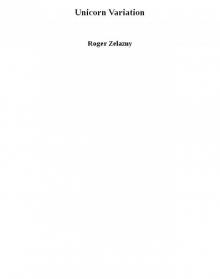 Unicorn Variation
Unicorn Variation A Night in the Lonesome October
A Night in the Lonesome October Madwand
Madwand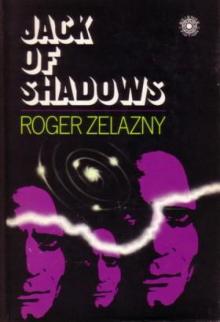 Jack Of Shadows
Jack Of Shadows Lord of Light
Lord of Light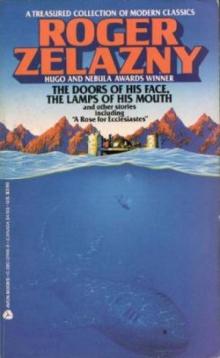 The Doors of His Face, The Lamps of His Mouth and Other Stories
The Doors of His Face, The Lamps of His Mouth and Other Stories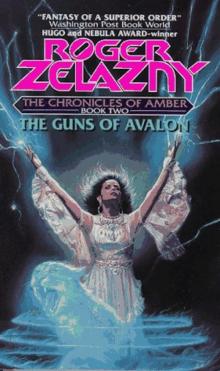 Guns Of Avalon tcoa-2
Guns Of Avalon tcoa-2 Coils
Coils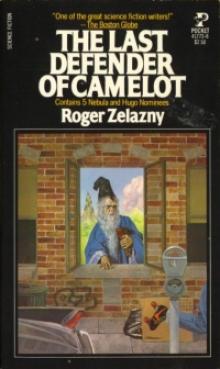 The Last Defender Of Camelot
The Last Defender Of Camelot Creatures of Light and Darkness
Creatures of Light and Darkness This Immortal
This Immortal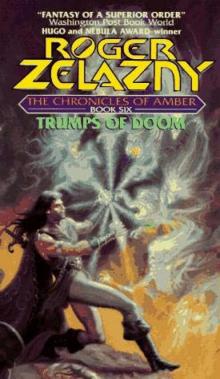 Trumps of doom tcoa-6
Trumps of doom tcoa-6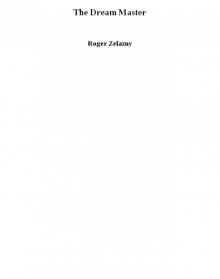 The Dream Master
The Dream Master The Complete Dilvish, The Damned
The Complete Dilvish, The Damned Nine Princes in Amber
Nine Princes in Amber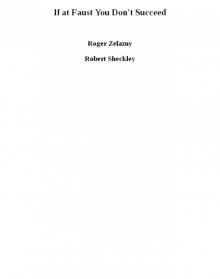 If at Faust You Don't Succeed
If at Faust You Don't Succeed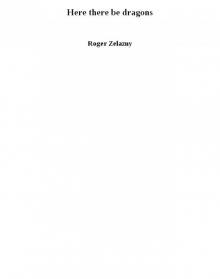 Here there be dragons
Here there be dragons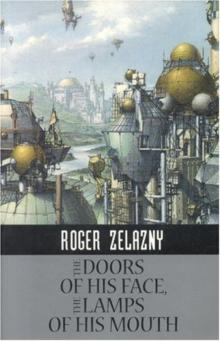 The Doors Of His Face, The Lamps Of His Mouth
The Doors Of His Face, The Lamps Of His Mouth The Great Book of Amber - Chronicles 1-10
The Great Book of Amber - Chronicles 1-10 Madwand (Illustrated)
Madwand (Illustrated) The Chronicles of Amber
The Chronicles of Amber To Die In Italbar
To Die In Italbar The Changing Land
The Changing Land The Furies
The Furies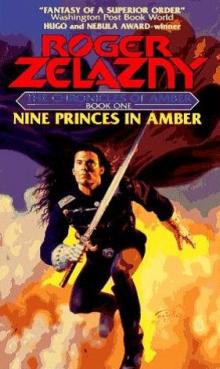 Nine Princes In Amber tcoa-1
Nine Princes In Amber tcoa-1 Last Of The Wild Ones
Last Of The Wild Ones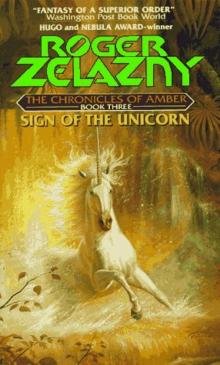 Sign of the Unicorn tcoa-3
Sign of the Unicorn tcoa-3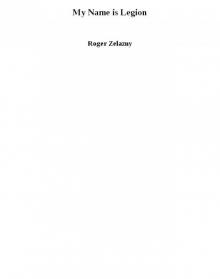 My Name is Legion
My Name is Legion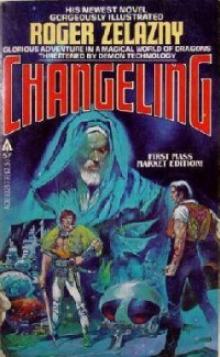 Wizard World 1: Changeling
Wizard World 1: Changeling Changeling
Changeling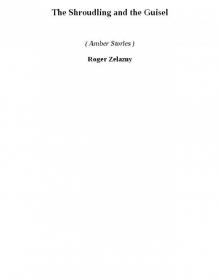 The Shroudling and the Guisel (amber stories)
The Shroudling and the Guisel (amber stories)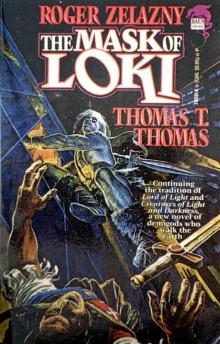 The Mask of Loki
The Mask of Loki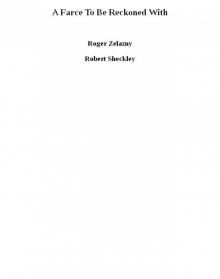 A Farce To Be Reckoned With
A Farce To Be Reckoned With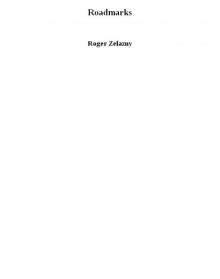 Roadmarks
Roadmarks When Pussywillows Last in the Catyard Bloomed (rtf)
When Pussywillows Last in the Catyard Bloomed (rtf)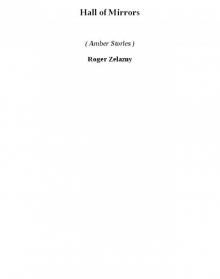 Hall of Mirrors (amber stories)
Hall of Mirrors (amber stories)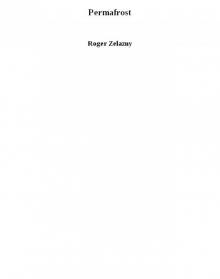 Permafrost
Permafrost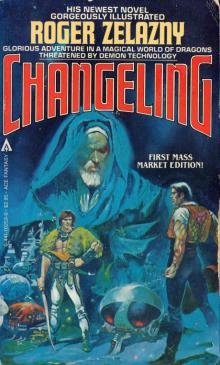 Changeling (Illustrated)
Changeling (Illustrated)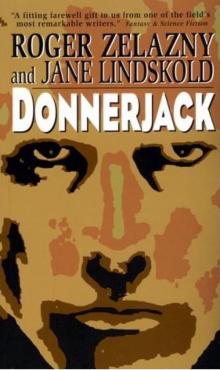 Donnerjack
Donnerjack Shadows & Reflections: A Roger Zelazny Tribute Anthology
Shadows & Reflections: A Roger Zelazny Tribute Anthology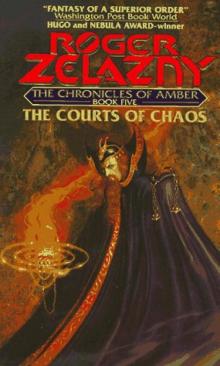 The Courts Of Chaos tcoa-5
The Courts Of Chaos tcoa-5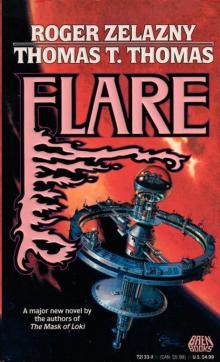 Flare
Flare Doorsways in the Sand
Doorsways in the Sand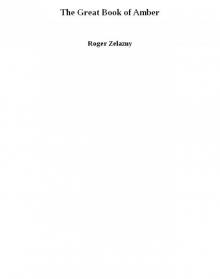 The Great Book of Amber
The Great Book of Amber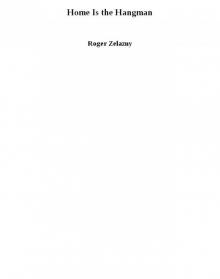 Home Is the Hangman
Home Is the Hangman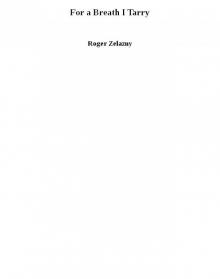 For a Breath I Tarry
For a Breath I Tarry Isle Of The Dead
Isle Of The Dead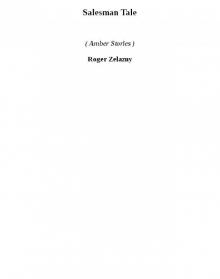 Salesman Tale (amber stories)
Salesman Tale (amber stories) Dismal Light
Dismal Light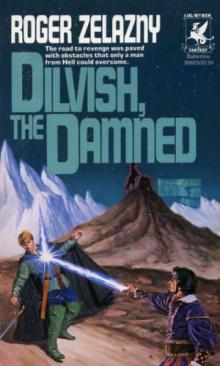 Dilvish, The Damned
Dilvish, The Damned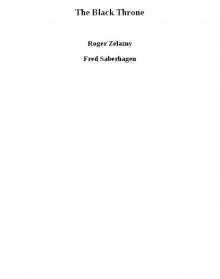 The Black Throne
The Black Throne Wizard World 2: Madwand
Wizard World 2: Madwand The Salesman's Tale
The Salesman's Tale